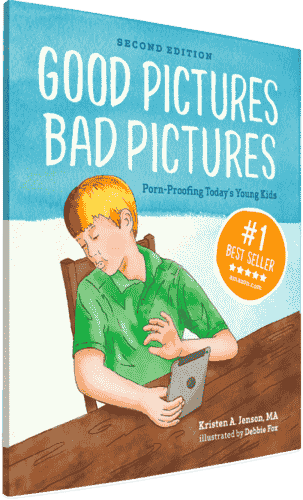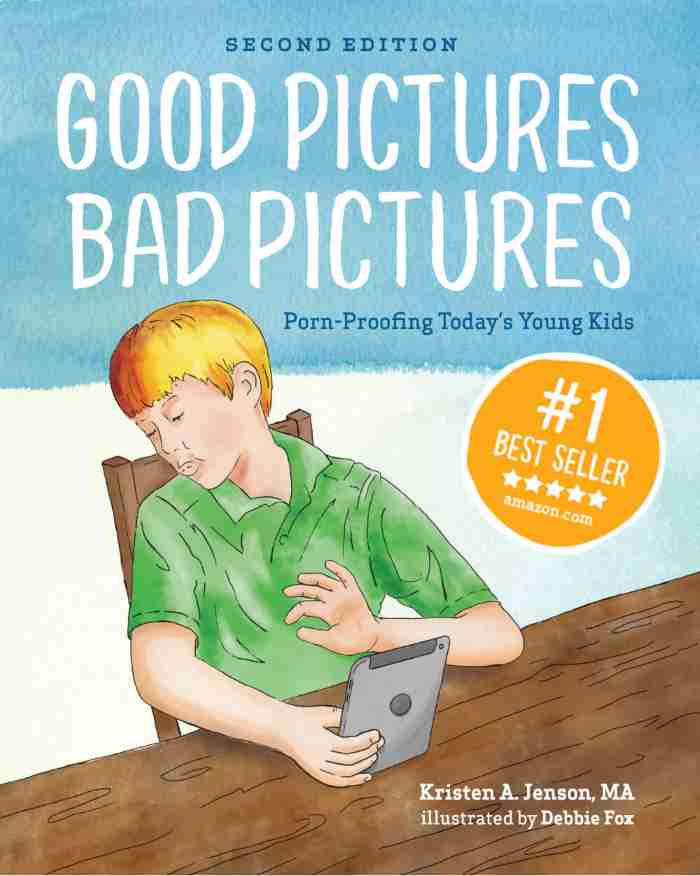

My Spouse Has a Porn Problem--4 Tips for Talking to Kids
This week's article is a guest post by Anne Blythe, founder of Betrayal Trauma Recovery.
Here’s an all-too-common scenario: One of your children comes to you with a gut-wrenching declaration. She saw pornography - on your spouse’s phone. It’s time to take action: it’s time to learn how to talk with children about a parent’s porn use.

Should I Talk With Children About A Parent’s Porn Use?
At Betrayal Trauma Recovery, I work with women after they have discovered their husband’s porn use.
Those who are in this situation know that the discovery is only the beginning of a host of problems. In some cases, children are actually the bearers of bad news. In that case, the victim is forced to have an uncomfortable discussion with their children about a parent’s porn use. If you find yourself in this situation, you might have questions like these:
- Is it OK to talk to my child about what is going on?
- How do I start this conversation?
- How much or little do I share?
- What do I say or not say?
- What can my child understand about this situation?
- How do I help my children process this?
Ashley, a member of the Betrayal Trauma Recovery community shares:
“My son walked in on his father viewing pornography in our home. My sweet boy was traumatized because of what he saw on the computer, but also knowing that his dad was watching it willingly. It took a long time for my child to even want to be around his father after this. I didn’t know what to do, what to say, or how to best help my child handle this sort of thing. I didn’t know how to handle it myself.”
Ashley’s confusion was completely normal. Eventually, she was able to have important conversations that empowered both herself and her son to find safety:
“I ended up giving him time to sort out how he felt and how much interaction he wanted with his father. I didn’t push or pry, and I made certain he knew that his boundaries would be honored.”
Related: Perfection Not Required! How Parents in Recovery Can Help Their Kids Reject Porn
Key tips on how to talk with children about a parent’s porn use
If and when your child discovers your partner’s porn use, it’s okay not to have all the answers right away.
You’ll need to douse yourself in self-care, support, and patience as you navigate through this difficult journey.
1. Process your own feelings about it
It would be nice to be able to compartmentalize harm. But it’s just not possible. Whether you found out about the pornography before or after your child, you’re going to have to deal with some difficult feelings.
Your first step is going to be self-care. Manicures are lovely, but we’re talking real self-care. And the first pillar is support. You’ll need to process what is happening in a safe space so that you can begin establishing emotional safety in your home. Many women join Betrayal Trauma Recovery Group, an online, daily support group to share their feelings and make a plan.
A daily check-in to ask questions, work through trauma, process the experience, and express intense emotions is some of the best self-care you will give yourself.
2. Learn about boundaries
We know you never imagined you’d be here.
Take a deep breath. You’re going to be okay. Because you’re going to set boundaries.
Boundaries are barriers that separate a victim from harm.
One boundary many spouses of porn users start with is setting up a filter on their router. Although people can get around boundaries like this, setting one up is something a parent can do regardless of what anyone else chooses to do. This can reduce the risk of your children being accidentally exposed to pornographic material. After all, boundaries aren’t about controlling adults, they’re about protecting you and your kids from harm.
Unfortunately, porn users often exhibit behaviors like lying, manipulation, deflection, gaslighting, and other forms of abuse. You’ll need support as you determine what boundaries are necessary to keep you and your children emotionally safe from that type of psychological abuse.
[[CTA]]
3. Be honest and open (if it’s safe to do so)
You know your children - you know what they are capable of understanding. You also know if they are safe to open up to. Communicate with them on their level, but be as direct, literal, and open as you can be.
Be sure to invite questions, engage in discussions, and keep the door open for opportunities to discuss healthy sexuality, honesty, fidelity, and any other related subjects when your child is curious or expresses concerns.
The principles taught by Defend Young Minds regarding having layered, ongoing conversations apply just the same in the context of talking with your children about healthy and unhealthy behaviors they observe in others.
4. Make it age appropriate
Consider enlisting the help of a children’s book to help guide the discussion. The Good Pictures Bad Pictures series of books are a great way to start the conversation.
You can also help children develop and use language for body parts, pornographic images, and sex to ensure accuracy and openness. This is a safety measure for kids--If they see pornography anywhere, they can identify it, label it, and tell an adult what has happened.
Bottom line: when you’ve got to talk to your child about a parent’s porn use - you’ve got this, Mama
We know it’s daunting - in the BTR community, we often hear stories about courageous women stepping up to the challenge of having these important discussions with their children even when it feels overwhelming, deeply sad, and even terrifying. But they do it with so much grace, strength, and fortitude.
You can too.
Have faith in yourself - in your intuition, your inner strength - despite the trauma that you are experiencing.
Reach out for help, give yourself permission to slow down, and remember that you’ve got this. You are so not alone.



Good Pictures Bad Pictures
"I really like the no-shame approach the author takes. It's so much more than just 'don't watch or look at porn.' It gave my children a real understanding about the brain and its natural response to pornography, how it can affect you if you look at it, and how to be prepared when you do come across it (since, let's face it... it's gonna happen at some point)." -Amazon Review by D.O.






